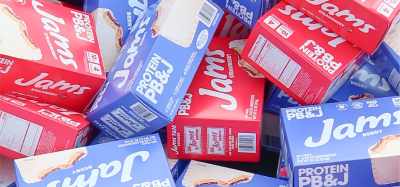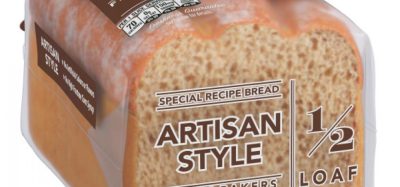An insider’s view of food crime
- Like
- Digg
- Del
- Tumblr
- VKontakte
- Buffer
- Love This
- Odnoklassniki
- Meneame
- Blogger
- Amazon
- Yahoo Mail
- Gmail
- AOL
- Newsvine
- HackerNews
- Evernote
- MySpace
- Mail.ru
- Viadeo
- Line
- Comments
- Yummly
- SMS
- Viber
- Telegram
- Subscribe
- Skype
- Facebook Messenger
- Kakao
- LiveJournal
- Yammer
- Edgar
- Fintel
- Mix
- Instapaper
- Copy Link
Posted: 19 October 2021 | Professor Chris Elliott | No comments yet
Chris Elliott recaps the biggest risks currently facing the food and drink sector, including organised crime, shortages and authenticity, and calls for more discussion around solutions.


I had the pleasure of Chairing the Food Authenticity and Crime session at the recent Global Food Safety Conference. The panel comprised a range of experts from the UK, Ireland and the US, and we managed to cover a lot of ground in the 90-minute time slot. Here, I share a summary of the salient points from my perspective for New Food.
It is clear that the risk profile is changing due to the large number of supply and demand challenges we are currently facing, both at home and internationally. Worker shortages, lack of HVG drivers and rising energy prices were all cited, as well as shifting food shopping patterns due to Covid. Consumers’ increasing preference for plant-based foods over dairy and meat; the drive for a sustainable food system and climate change represent some of the macro, longer term factors also called out.
The question of who is responsible for protecting consumers from food crime was discussed. Clearly the responsibility lies with food businesses but the important role of collaboration with government agencies, working in partnership with industry, was seen as being of paramount importance. The role of consumers was mentioned but it was generally agreed that, aside from not buying food that was ‘too good to be true’, there is little that can be expected and instead the role falls to that of governments and businesses working together to safeguard the public. The Food Industry Intelligence Network, as is often the case in such meetings, was highlighted as the type of mechanism that many other countries must adopt. The collection and sharing of important and very sensitive data is missing, leaving a huge gap in terms of understanding the risks from particular commodities produced in a range of ‘high risk’ countries.
The informative Peter Whelan from the Food Safety Authority of Ireland presented several case studies of recent investigations undertaken by the organisation. Two very clear messages were highlighted. Firstly, all his recent investigations into food companies that consequently uncovered illegal activity were all BRC-approved businesses. Thus, such accreditation is no guarantee of protecting your business or consumers from fraud. There is a lot more to criminal activity than merely bulking out products with inferior ingredients. Sophisticated document fraud, financial fraud and even environmental fraud are all tools used by criminals and only forensic-style investigations will uncover such practices, which require multi-agency approaches and expertise.
The second chilling message was that the food chain is at risk of being overtaken by drug lords. The selling of cannabis-laced edibles, especially jellies to children, illustrates the extent of the risks that are present and lie ahead. Those that want to make money illegally do not care about the victims, even if they are children. For many years I have warned about organised crime infiltrating our food supply system close to home and it seems that evidence is emerging to support these fears.
On a more positive note, more food companies are now including food fraud in their risk registers and undertaking vulnerability assessments. However, although this may be performed by large businesses, how can SMEs move in the same direction? Prevention must be the focus for all to ensure unsafe food does not reach the marketplace. With the current dynamics of supply and demand being in such a state of turbulence, never has this message been more important.
I believe these issues necessitate in-depth discussion and debate. The clear pointers to future challenges that our session revealed require a larger and more open forum, and the next Food Integrity conference will be the ideal place for this to happen.
Related topics
Food Fraud, Food Safety, Regulation & Legislation, retail, Supply chain, The consumer
Related organisations
Food Industry Intelligence Network (FIIN), Food Safety Authority of Ireland (FSAI)









